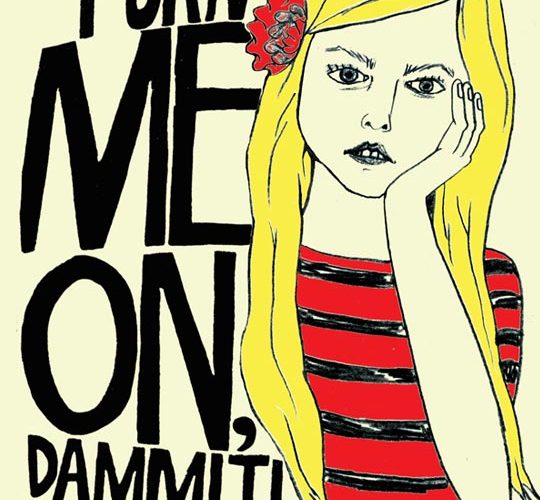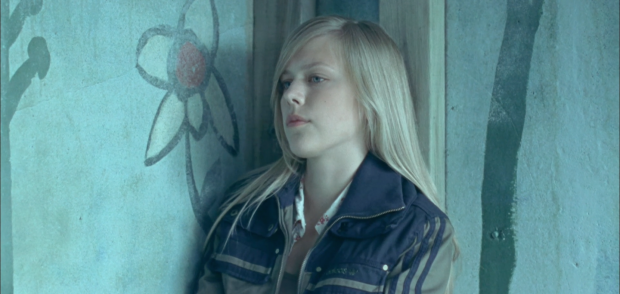If the title of Jannicke Systad Jacobsen‘s Turn Me On, Dammit! has you expecting a raunchy comedy of flamboyant zest, it may not hurt to dial back your expectations a bit. We do get no less than two up-close-and-personal looks at Artur’s (Matias Myren) Dirk Diggler, and I’d be lying if I said our introduction to 15-year-old Alma (Helene Bergsholm) — the outright image of her exploring her pants under the tutelage of a phone-sex worker named “Stig” — is something you see at the movies every day.
But Jacobsen, working from her own adaptation of an Olaug Nilssen novel, approaches the material with a Norwegian bite that keeps the on-screen stuff at a sleety distance. What we’re meant to laugh out loud at like rowdy, foolish goons in a Judd Apatow movie plays severely differently here, and that generally gives the film a more interesting aura than the material has on its own terms.
At only 76 minutes, Turn Me On, Dammit! is slight and, to an extent, partly aware of that fact. The action rides on one early event: at a booze-filled party outside the local youth center, Artur approaches a lonely, longing Alma and — wait for it — touches her thigh with his thing. He’s naturally embarrassed by this, and flees the scene. When Alma tries to tell her friends about it later, they smirk, because a hunky-eyed dreamboat such as Artur would never do something like that to an outsider-type — and especially not one as cute and ethereal-looking as Alma.
The trick is that Alma is so flummoxed by her own obsessive sexual cravings — she even daydreams about her convenience-store boss, who’s not exactly a head-turner — that she begins to doubt whether or not Artur actually approached her. Her sensory visions and her physical experience become so interwoven that distinguishing the two becomes a slippery, abstract activity. That’s true for the viewer as well — it took me a couple of go-throughs to realize how intent Jacobsen was on manifesting her protagonist’s fantasies. If that sounds like it could be unique take on paper, it unfortunately plays like a way to finesse around the blatant thinness of the narrative.
Meanwhile, the film never really pins down Alma’s relation to those closest to her. Very little of the interaction between her and her mother (Henriette Steenstrup) rings true in any significant way. The presence of a peeping neighbor starts out as semi-funny, then loses its humor entirely, and ultimately winds up playing an annoying part in the third-act wrap-up. Artur’s character is basically a blank slate of nothingness, so nothing he does carries any immediate interest. The only characters who have a remotely engaging dynamic with Alma — the nice, chain-smoking Sara (Malin Bjørhovde) and Maria (Julia Bache-Wiig), a hip college student — aren’t given enough time to work with.
What makes the film handily passible is the way the setting — the hilly, isolated town of Skoddeheimen — is incorporated into the film’s atmosphere and tone. The locations are gray and almost colorless, and so are the straight-laced deliveries of the performers. It’s all so pale and muted, and it works in an off-kilter sort of way. It certainly lends the screenplay more edge than it inherently contains.
Most of the more positive takes you’ll read on Turn Me On, Dammit! will cite the film’s refreshingly frank confrontation of teenage sexuality from a strictly female point-of-view. I get that — teenage girls aren’t often portrayed in this ight, etc. But then I think of something like Kenneth Lonergan‘s Margaret, which is frank about a teenage girl’s sex life while also being frank about a zillion other things, and you begin to realize how limited the scope of Jacobsen‘s film is. The cheeky one-liner that closes the film will probably be a fair barometer on where you’ll stand with the film. A lot of people will probably laugh. I rolled my eyes.
Turn Me On, Dammit! is now in limited release.



